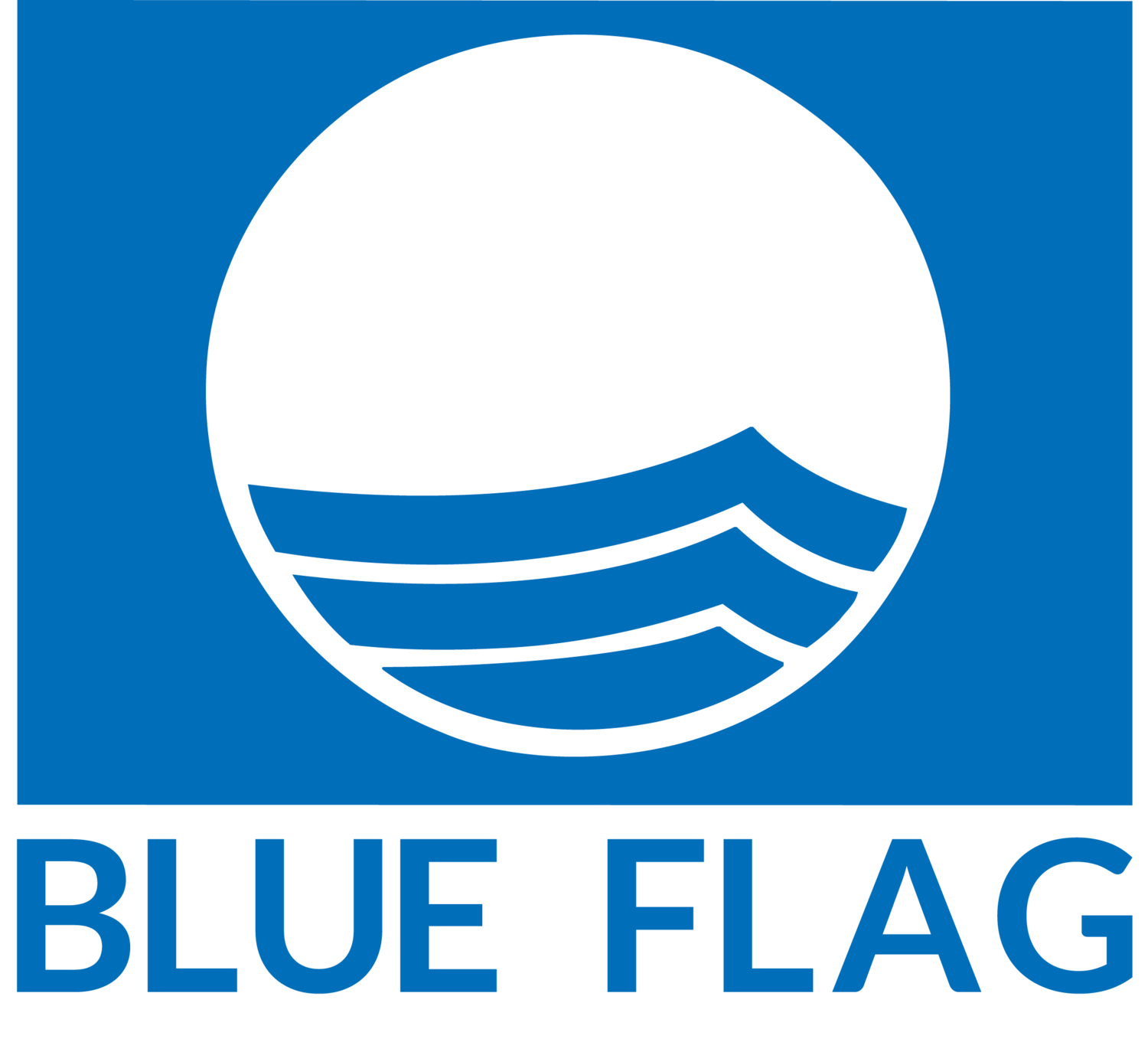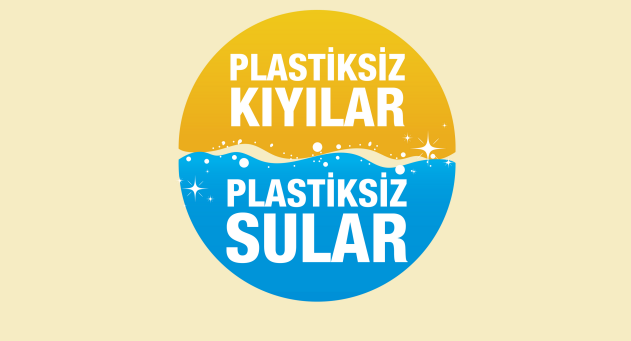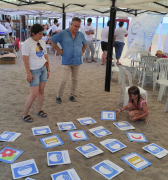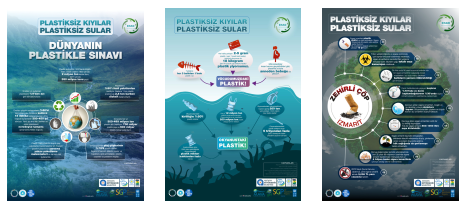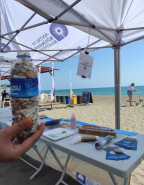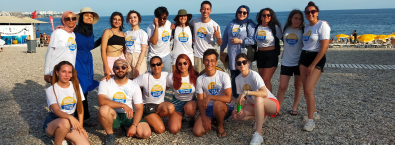Project partners: Ecological Research Association (EKAD), Turkish Environmental Education Foundation (TÜRÇEV), and Antalya Metropolitan Municipality
Funding: Support Foundation for Civil Society (STDV), Conservation Collective, Turquoise Coast Environment Fund, MAVA, GEF, SGP, UNDP
Project description:
The project emerged from three organisations joining forces with the shared goal of combatting littering, particularly the indiscriminate disposal of cigarette butts on the ground instead of in bins. From this initial concept, the project evolved to underscore the idea that fostering a litter-free environment is not solely the responsibility of municipalities; rather, it is a shared responsibility among individuals.
The project's design primarily centred on addressing plastic pollution, with a specific emphasis on the impact of cigarette butts. Plastics, known for their durability and near-immortality, break down into microplastics via photodegradation. These microplastics can enter the food chain, posing significant health risks to living organisms. With global plastic production exceeding 500 million tonnes annually, and nearly half of it being single-use plastics, the urgency to address this issue is paramount. Unfortunately, less than 9% of produced plastics are recyclable, leading to the accumulation of plastic wastes in landfills. A significant portion of these finds its way into oceans, resulting in plastics constituting approximately 80% of ocean pollution. The world's oceans currently harbour around 200 million tonnes of plastics, posing a severe threat to the ecosystem.
Given the escalating plastic pollution on Turkiye’s beaches, exacerbated by litter left by beachgoers, the project partners decided to start the Project in Antalya, a world-renowned tourism centre, and chose two public beaches in Antalya: Konyaaltı and Serik. The project's focus on these specific locations aimed to address the pressing issue of plastic pollution in coastal ecosystems, particularly in the Mediterranean region.
The objective:
The project aimed to educate 30 young volunteers about environmental issues and plastics, and then, with their assistance, to execute a series of awareness-raising activities on two public beaches to disseminate information among beach users regarding plastics and their detrimental effects.
The main objectives encompassed highlighting the adverse environmental impacts of plastics and microplastics, educating people about the fact that cigarette butts are also plastic wastes containing toxic chemicals, and presenting alternative options for single-use plastics. Through these objectives, the project aimed to foster a deeper understanding of the environmental consequences of plastic pollution and empower individuals to make informed choices to mitigate its impact.
Activities:
In two separate weeks in late July and early August, EKAD hosted a total of 30 participants at its volunteer camp in Belek, organising a comprehensive 2-day educational program. Participants attended courses on ecological footprint, waste impacts, beach pollution, types of plastic, plastic recycling, the concepts and criteria related to the Blue Flag award, and the Marine LitterWatch program developed by the European Environment Agency.
Following the educational sessions, volunteers established information desks on their respective Blue Flag holder public beaches. They conducted thorough clean-ups, adhering to the principles of the EEA's Marine LitterWatch program, categorising and quantifying collected waste to obtain numerical data. Additionally, they recorded beach pollution levels through visual measurements at different hours. Children were engaged in specially designed games and activities aimed at fostering environmental awareness, while informative discussions were initiated with teenagers and adults. The information desk also contained a section where visitors could see, touch and try alternative products for single-use plastics.
Project partners designed and produced three distinct posters highlighting facts, figures, and negative impacts associated with plastics, along with a brochure focusing primarily on single-use plastics. These materials were prominently displayed throughout the activities. Volunteers also conducted surveys with beach visitors, using questionnaires comprising a maximum of five questions to gauge their knowledge and awareness levels.
In all activities, particular emphasis was placed on the pivotal role of beach users in causing beach pollution. The core message underscored that maintaining a clean beach begins with the conscience and awareness of individuals. To visually represent the impact of individual actions, cigarette butts collected from these Blue Flag beaches that are cleaned daily were displayed in 30-litre graded cylinders. This tangible representation served as a poignant reminder of the pollution that individuals can contribute, despite constant cleaning efforts.
Outcomes:
The questionnaires revealed that almost half of the beach users were unaware that cigarette butts were in fact plastic wastes, and the likelihood of littering was highly connected to the assumption that someone else would handle the clean-up. The display of cigarette butts in a 30-litre graded cylinder was a powerful visual tool, reflecting how much pollution can accumulate in a single day despite cleaning efforts, raising awareness dramatically.
The section showcasing alternatives to single-use plastics also garnered significant interest from beach visitors, prompting inquiries from several Blue Flag hotels on where to purchase these products.
The posters and brochures created for the project are poised to be valuable tools for drawing attention to plastic facts. Project partners are contemplating adapting these materials into other formats suitable for use in schools, such as flashcards or board games. A dedicated booklet created for volunteers, detailing the program and activities, is envisioned as a guide for municipalities or organisations seeking to undertake similar initiatives.
With the contributions and participation of local municipalities, tourism investor associations, Blue Flag hotels, international participants of an Erasmus+ project, and Rotary Antalya, the project garnered substantial media coverage and attention. A project video has been produced and is available on YouTube.
Project partners are gearing up for phase two, actively pursuing funding opportunities to expand the project's scope. Plans for the next phase include involving schools and collaborating with companies producing alternative goods for single-use plastics. The feedback forms completed by the volunteers overwhelmingly indicate a high level of satisfaction with the project. Almost all participants have expressed their willingness to participate in the project again next year. This positive response underscores the project's success in engaging and inspiring these young individuals, who are now positioned to evolve into instructors for the project's ongoing phases. Their feedback will also play a pivotal role in refining and enhancing the project's design and activities.
